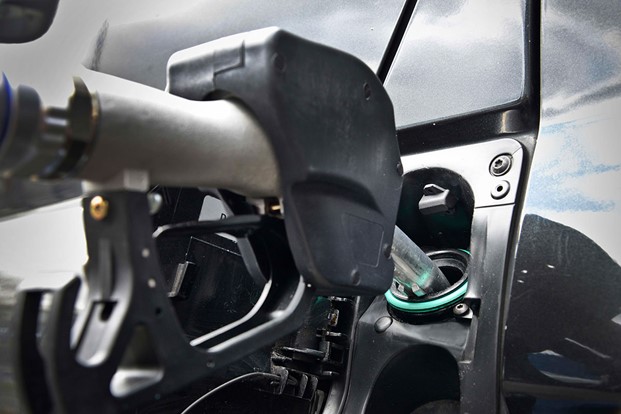Great Fleet Management Requires Great Fuel Management
The elements of effective commercial fleet management develop and change each year as new ideas and innovations are created. Fleet managers have known for years that the only way to stay competitive is to grow and change as a business, and one factor always remains the same: great fleet management always leads to improved fleet management.
Improved fuel management has many benefits for a business, from individual assets to company finances and even your business’s sustainability. Read on to explore how to achieve this and how it will benefit your business.

Why Must Fleet Management Be Flexible?
Simply put, with static management you risk missing opportunities and leaving your business behind, whereas flexible management improves and adapts to the times. To achieve this, you need to create an adaptable management review system that guides your efforts toward the industry’s current focus, which, in 2024, means increasing sustainability to create green fleets nationwide.
Supporting the current trend of creating green fleets has the beneficial effect of helping protect our environment by lowering or eliminating harmful emissions. It also enables businesses to reinforce their reputation by presenting themselves as eco-conscious and responsible fleet operator over their competitors.
Additionally, the practices supporting this initiative have the added side effect of reducing overall fuel used across your fleet and, as a result, reducing your fuel expenses in the long term. The following are some examples of practical methods to future-proof your fleet’s fuel management and lower fuel expenses and loss.
Improved Asset Management Reduces Fuel Loss
The quickest improvement you can make as a manager is to improve your asset’s fuel usage. This should start with a comprehensive review of both external and internal areas where your purchased fuel is spent to discover where it’s used either responsibly or irresponsibly. While each business will need to explore factors specific to their operations, there are two main areas that generally apply, and the two are where the most fuel is lost unnecessarily: inefficient use and theft from storage.
Driver and Vehicle Monitoring
Inefficient driving practices are common and easy to ignore when your drivers are alone, but they lead to significantly increased fuel usage. When these disruptive attitudes spread across your entire fleet, you’ll find your fuel expenses rising to higher levels. For example, excessive engine idling is a common problem as delivery drivers feel leaving their engines running reduces time to the next destination. However, it uses substantially more fuel than if the engine was turned off while not in use. Other areas that apply are:
- Heavy-footed driving: Excessive breaking and accelerating not only increases the wear of the HGV’s parts but uses more fuel compared to travelling at a safe, steady pace.
- Choosing inefficient routes: Taking the long way to get to your destination not only extends the lead times of your work but uses more fuel in the process. Using adaptive GPS systems will update your drivers on the most fuel-efficient routes to take.
- Driving mostly empty vehicles: Delivery vehicles need to be efficiently filled with stock to make the fuel used worth the journey. The decreased weight of a lighter vehicle doesn’t have enough of a positive impact on the fuel compared to the extra fuel needed later to make another journey.
- The state of the vehicle itself: All vehicles should be checked for maintenance regularly to prevent unexpected engine failure. Still, there’s the immediate benefit that engines in the best condition will use fuel more efficiently than a neglected one. The most straightforward solution to getting the most out of your vehicles themselves is to inspect each machine before each job. That way, you get a clear impression of the HGV’s condition with long-term comparisons that help plan preventative maintenance and ensure it only uses what it needs for daily operations.
Fuel Security Options
The many benefits provided by onsite bunded fuel tanks come with one downside: their vulnerability to theft. These tanks need to be stored outside, and at a safe distance as dictated by government regulations so they become a target for thieves who attempt to steal your purchased fuel.
Fortunately, we supply fuel access methods and advice to help our clients build a strong system for fuel security. For example, equipment such as Datatags and our recently developed DataNozzles are excellent tools that work with any of our FT4000 series diesel pumps and act as a deterrent against theft from within your company. Additionally, our TankWatch system acts as an effective monitoring tool for your stored fuel and will generate an alert with any unusual or sudden loss of stock, which would indicate either an internal or external theft.
With our years of experience installing these systems securely for various businesses, our team will install your new system; we will offer additional aftercare advice for your fuel storage, including recommendations such as light and CCTV placement nearby to act as additional deterrents to thieves.
These pump events are tracked with wireless monitoring software that will corroborate the dispensed fuel with your records, and with our fuel tank monitoring system TankWatch, you’re alerted to any unexpected drops in fuel levels connected to thefts.
Investing in Green Fuel with Onsite Storage
A green fleet is no longer a bonus but a growing requirement with the focus on sustainability. Integrating diverse fuel types such as AdBlue and HVO (Hydrotreated Vegetable Oil) in your onsite fuel tanks will meet this need while offering varied benefits to operations.
- AdBlue, an exhaust cleaning agent, complements diesel by reducing harmful nitrogen oxide emissions. Businesses that use AdBlue can better comply with environmental regulations, enhancing their green credentials.
- HVO, a renewable diesel product, is a relative newcomer. It’s lauded for its exceptional environmental profile – significantly reducing CO2 emissions compared to conventional diesel. However, specific bunded storage and handling considerations are required before implementation.
By choosing these fuels that reduce or eliminate carbon emissions in your vehicles and combining them with the previously discussed fuel use strategies, you can compound the benefits to create an impressively green fleet quickly.
Complete Fuel Management Solutions at Fueltek
At Fueltek, we pride ourselves on the effectiveness of the various fuel storage, dispensing, and management solutions we provide to businesses nationwide. Explore our solutions in more detail in our online catalogue or contact us directly; one of our team members will help you discover the best bespoke solution for your commercial fleet fuel management needs.










